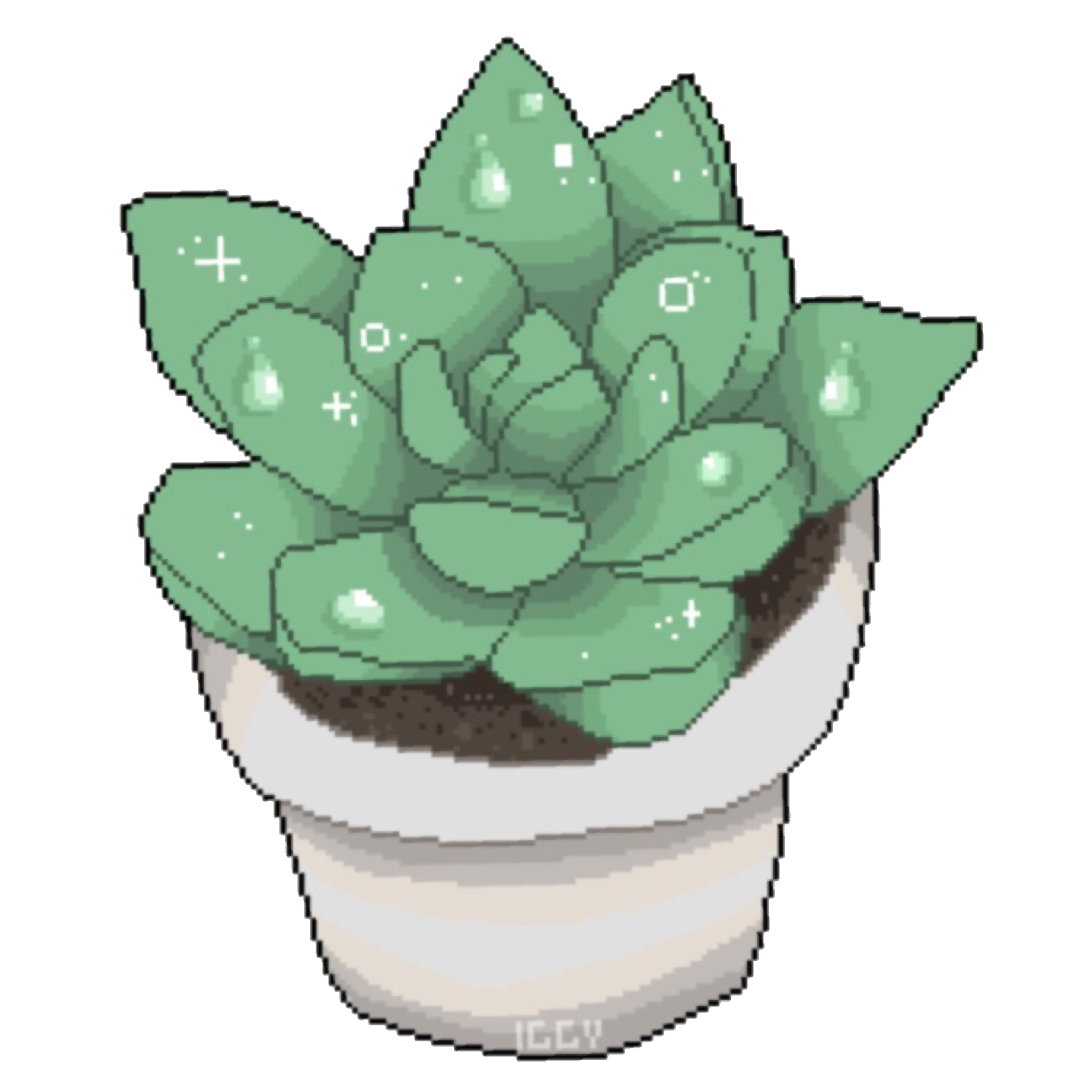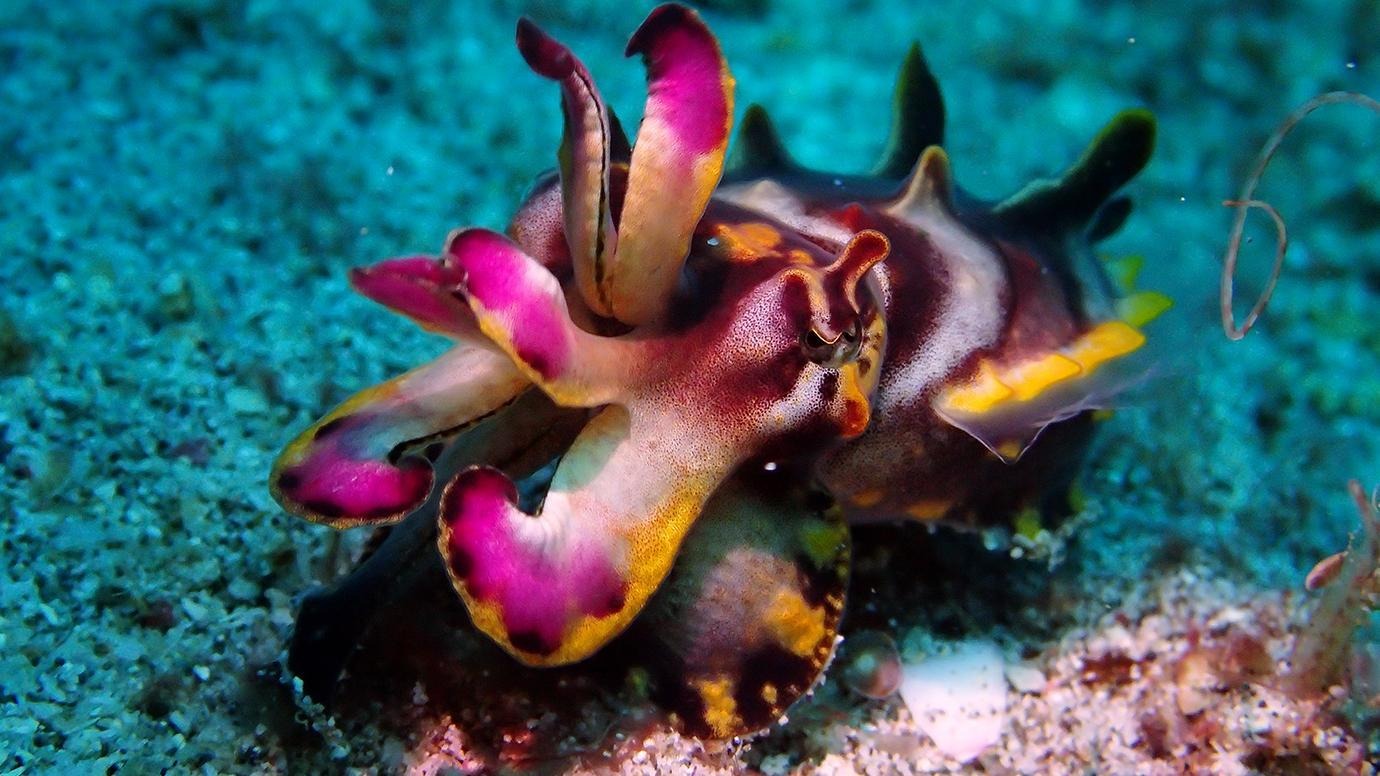Did you create this yourself? Kudos, if so! If not, do you have a source? Either way, thank you for sharing. My plants are thanking you too ;)
No, it’s s common graphic if you do a reverse image search with a lot of variants. :)
Is there a higher resolution version?


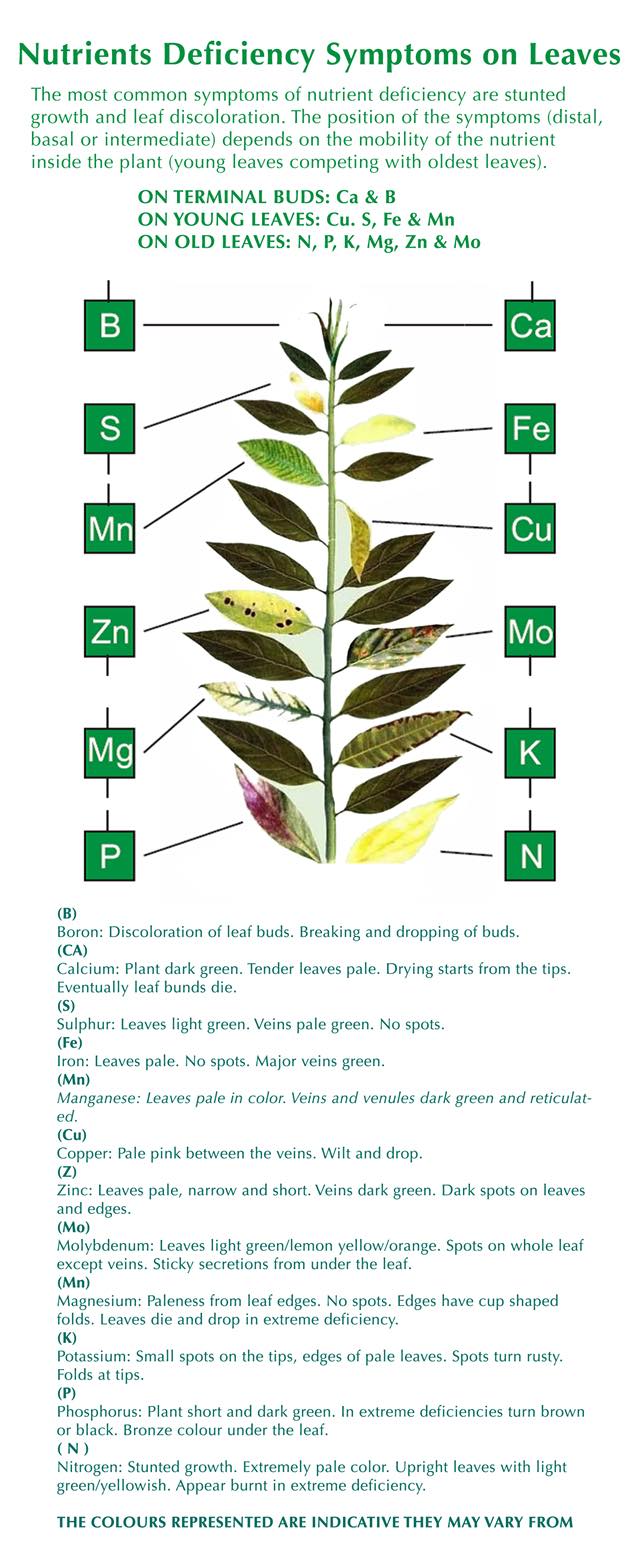
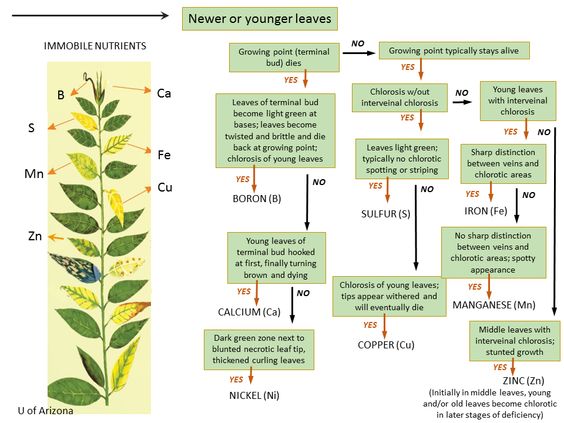
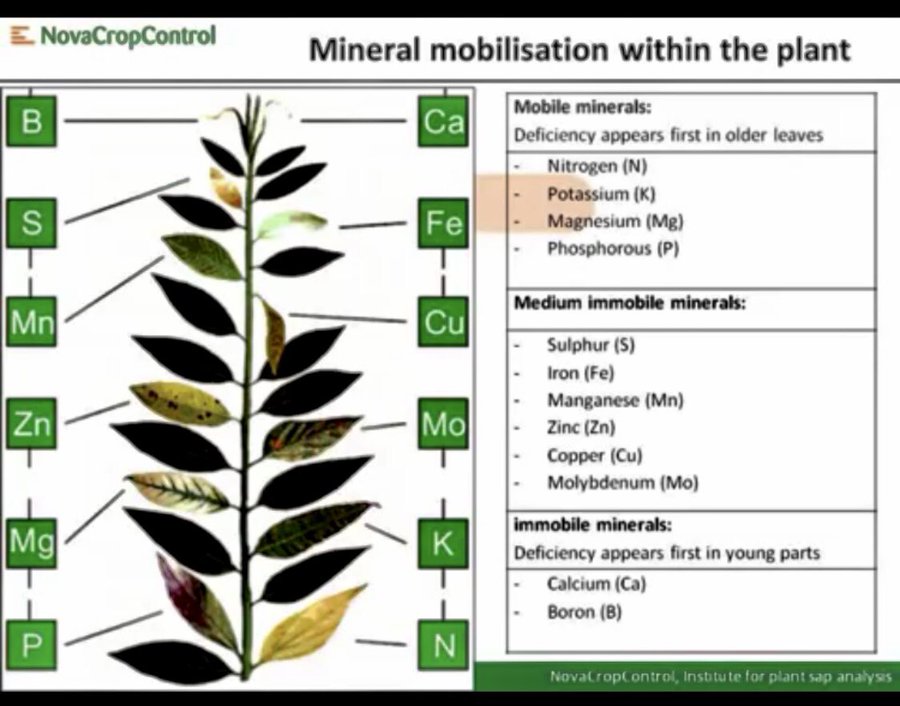
“The most common symptoms of nutrient deficiency are stunted growth and leaf discoloration. The position of the symptoms (distal, basal or intermediate) depends on the mobility of the nutrient inside the plant (young leaves competing with oldest leaves). ON TERMINAL BUDS: Ca & B ON YOUNG LEAVES: Cu. S, Fe & Mn ON OLD LEAVES: N, P, K, Mg, Zn & Mo (B) Boron: Discoloration of leaf buds. Breaking and dropping of buds. (CA) Calcium: Plant dark green. Tender leaves pale. Drying starts from the tips. Eventually leaf bunds die. (S) Sulphur: Leaves light green. Veins pale green. No spots. (Fe) Iron: Leaves pale. No spots. Major veins green. (Mn) Manganese: Leaves pale in color. Veins and venules dark green and reticulated. (Cu) Copper: Pale pink between the veins. Wilt and drop. (Z) Zinc: Leaves pale, narrow and short. Veins dark green. Dark spots on leaves and edges. (Mo) Molybdenum: Leaves light green/lemon yellow/orange. Spots on whole leaf except veins. Sticky secretions from under the leaf. (Mn) Magnesium: Paleness from leaf edges. No spots. Edges have cup shaped folds. Leaves die and drop in extreme deficiency. (K) Potassium: Small spots on the tips, edges of pale leaves. Spots turn rusty. Folds at tips.
(P) Phosphorus: Plant short and dark green. In extreme deficiencies turn brown or black. Bronze colour under the leaf. ( N ) Nitrogen: Stunted growth. Extremely pale color. Upright leaves with light green/yellowish. Appear burnt in extreme deficiency.” “THE COLOURS REPRESENTED ARE INDICATIVE THEY MAY VARY FROM PLANT TO PLANT”Awesome!
Anyone know off hand if liquid seaweed covers all these bases?
I’d expect that would be dependent on the manufacturer. I added some more graphics to the post.

